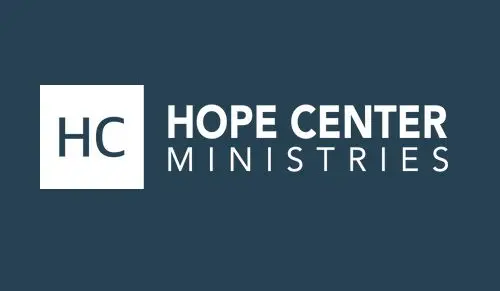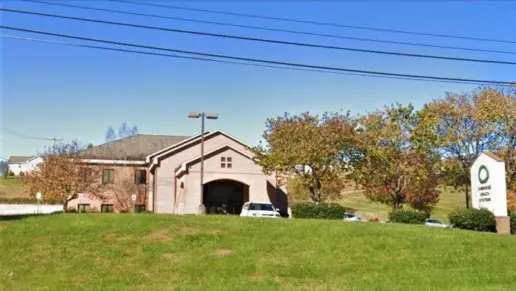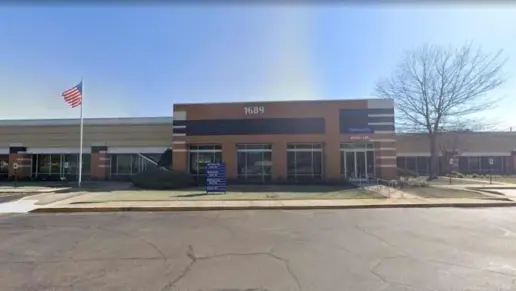Today is the 9th day for my loved one in the Freeman IOP Program. For someone just coming out of a 5 week inpatient rehab (6th attempt), we had hoped for an experience the website promises: structured environment, therapy, counseling, couseling, ......... in order to make a ...
About Freeman Sober Living
Freeman Recovery Center, in Dickson, Tennessee, is a luxury, 12 step-focused drug and alcohol rehab for adults. They provide medically supervised detox, dual diagnosis care, and inpatient, outpatient, and aftercare services. Their primary treatment modalities include psychotherapy, recovery-focused life skills training, and evidence-based complementary care.
Freeman Recovery Center is a 12 step-focused drug and alcohol rehab for adults in Dickson, Tennessee, offering medically supervised detox and inpatient, outpatient, and aftercare services. Dedicated programming for persons with co-occurring addiction and mental illness is available.
Clients undergoing detox receive round-the-clock medical supervision. FDA-approved medications may be prescribed to ease withdrawal symptoms and prevent potentially serious complications.
The inpatient program allows clients to focus on their recovery in a private, homelike environment with premium amenities, including hiking trails and onsite fitness facilities. Clients receive medical and mental health assessments, personalized care planning, and comprehensive case management. They also engage in intensive, trauma informed, CBT-based psychotherapy, including individual, group, and family counseling. An array of evidence-based complementary therapies is available, including equine, creative arts, recreational, and experiential therapy. The program prioritizes recovery-focused life skills training to facilitate clients’ successful reintegration into their home, workplace, and community.
The outpatient program promotes clients’ long-term recovery through a robust continuum of care aligned with clients’ evolving needs. Their step-down approach encompasses multiple levels of care, including partial hospitalization (PHP), intensive outpatient (IOP), and standard outpatient programming. Aftercare services may include peer coaching, 12 step program induction, and referrals for medical, mental health, and social service programs.
Freeman Recovery Center is state licensed and accredited by the Joint Commission. They accept private insurance, Medicaid, and self-pay.
Latest Reviews
Rehab Score
Gallery
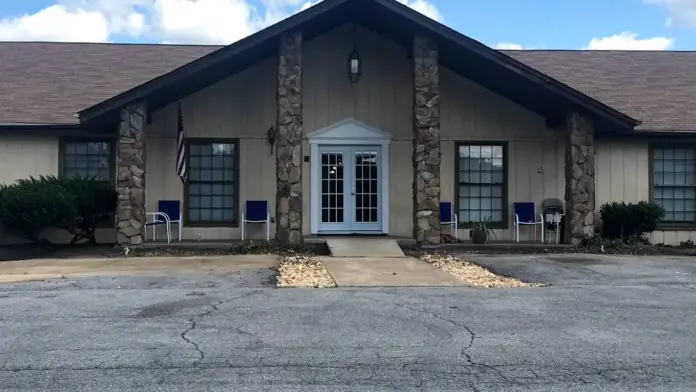
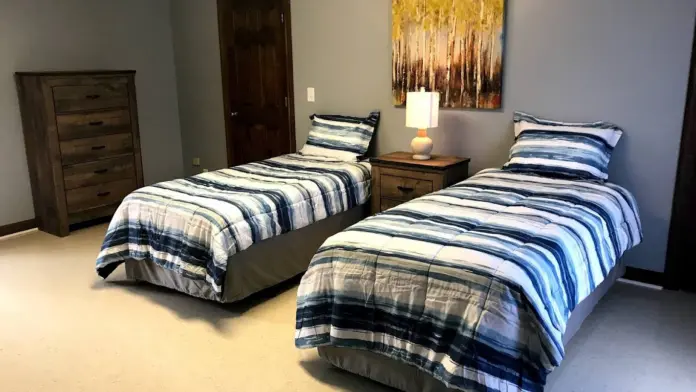
Location
Other Forms of Payment
Private insurance refers to any kind of healthcare coverage that isn't from the state or federal government. This includes individual and family plans offered by an employer or purchased from the Insurance Marketplace. Every plan will have different requirements and out of pocket costs so be sure to get the full details before you start treatment.
Self-pay involves paying for treatment out of your own pocket. You can use savings or credit, get a personal loan, or receive help from family and friends to fund your treatment. If you don't have insurance or your insurance plan doesn't cover a specific program, self-pay can help ensure you still get the care you need.
Medicaid is a state based program that helps lower-income individuals and families pay for healthcare. Medicaid covers addiction treatment so those enrolled can use their coverage to pay for rehab. When a program accepts Medicaid the client often pays very little or nothing out of their own pocket.
Military members, veterans, and eligible dependents have access to specific insurance programs that help them get the care they need. TRICARE and VA insurance can help you access low cost or no cost addiction and mental health treatment. Programs that accept military insurance often have targeted treatment focused on the unique challenges military members, veterans, and their families face.
Addiction Treatments
Levels of Care
Treatments
The goal of treatment for alcoholism is abstinence. Those with poor social support, poor motivation, or psychiatric disorders tend to relapse within a few years of treatment. For these people, success is measured by longer periods of abstinence, reduced use of alcohol, better health, and improved social functioning. Recovery and Maintenance are usually based on 12 step programs and AA meetings.
When your day-to-day life is taken over by drug use, this is known as substance use disorder. If you abruptly stop using your drug of choice, you experience withdrawal symptoms. To overcome this cycle, professional drug rehab in Tennessee is usually needed.
Many of those suffering from addiction also suffer from mental or emotional illnesses like schizophrenia, bipolar disorder, depression, or anxiety disorders. Rehab and other substance abuse facilities treating those with a dual diagnosis or co-occurring disorder administer psychiatric treatment to address the person's mental health issue in addition to drug and alcohol rehabilitation.
A combined mental health and substance abuse rehab has the staff and resources available to handle individuals with both mental health and substance abuse issues. It can be challenging to determine where a specific symptom stems from (a mental health issue or an issue related to substance abuse), so mental health and substance abuse professionals are helpful in detangling symptoms and keeping treatment on track.
Opioid rehabs specialize in supporting those recovering from opioid addiction. They treat those suffering from addiction to illegal opioids like heroin, as well as prescription drugs like oxycodone. These centers typically combine both physical as well as mental and emotional support to help stop addiction. Physical support often includes medical detox and subsequent medical support (including medication), and mental support includes in-depth therapy to address the underlying causes of addiction.
Programs



Clinical Services
Cognitive Behavioral Therapy (CBT) is a therapy modality that focuses on the relationship between one's thoughts, feelings, and behaviors. It is used to establish and allow for healthy responses to thoughts and feelings (instead of unhealthy responses, like using drugs or alcohol). CBT has been proven effective for recovering addicts of all kinds, and is used to strengthen a patient's own self-awareness and ability to self-regulate. CBT allows individuals to monitor their own emotional state, become more adept at communicating with others, and manage stress without needing to engage in substance abuse.
Counseling in Tennessee that takes a dialectical behavior therapy approach can last from six to 12 months. During that time, you'll develop skills in the areas of distress tolerance, mindfulness, emotional regulation, and interpersonal effectiveness.
Equine therapy, aka equine-assisted therapy (EAT), is a form of experiential therapy that involves interactions and activities with horses. It does not necessarily involve riding horses, but all activities related to horses, such as feeding, grooming, haltering and leading them. A mental health professional frequently oversees the activities (often in conjunction with a horse professional), and helps patients process their thoughts, feelings, and behavior patterns during and/or after the interaction.
Group therapy is any therapeutic work that happens in a group (not one-on-one). There are a number of different group therapy modalities, including support groups, experiential therapy, psycho-education, and more. Group therapy involves treatment as well as processing interaction between group members.
Freeman Recovery Center was formed with the mission to provide one-of-a-kind treatment to every individual who enters their facility. The individual counseling process involves a helping relationship between visitors and their expert therapists. These relationships are one of the important pieces of what makes their counseling services successful. The therapists at their center assist individuals through the process of expressing emotions, solving personal problems, and understanding oneself better. Their staff also is available to offer continual support and resources.
If you participate in motivational interviewing in Tennessee, your therapist will focus on four key strategies: open questions, affirmation, reflections, and summarizing. Rather than confront or warn you to change, the clinician will allow you to explore your own motivations and decide what changes you may need to make in your life.
Trauma therapy addresses traumatic incidents from a client's past that are likely affecting their present-day experience. Trauma is often one of the primary triggers and potential causes of addiction, and can stem from child sexual abuse, domestic violence, having a parent with a mental illness, losing one or both parents at a young age, teenage or adult sexual assault, or any number of other factors. The purpose of trauma therapy is to allow a patient to process trauma and move through and past it, with the help of trained and compassionate mental health professionals.
Whether a marriage or other committed relationship, an intimate partnership is one of the most important aspects of a person's life. Drug and alcohol addiction affects both members of a couple in deep and meaningful ways, as does rehab and recovery. Couples therapy and other couples-focused treatment programs are significant parts of exploring triggers of addiction, as well as learning how to build healthy patterns to support ongoing sobriety.
Freeman Recovery’s family program allows visitors of their facility to meet with a licensed professional counselor for a 2-3 hour session once every 28 days. Addressing addiction can be extremely stressful for loved ones, but their licensed therapists will help families make it through the recovery process successfully. It is important to have support after leaving their treatment facility, so their goal is to equip families with the necessary tools and education to help them assist in their loved one’s recovery process.
Life skills trainings involve all the skills a person must have in order to function successfully in the world. These include time management, career guidance, money management, and effective communication. Truly successful addiction recovery is based on the ability to not only live substance-free, but to thrive. Life skills teaches the practical necessities of functioning in society, which sets clients up for success in life, and therefore sobriety.
Recreational therapy (aka therapeutic recreation) uses creative and fun activities to help with addiction recovery. Recreational therapists lead patients in entertaining and engaging activities like sports or games; art (drawing, painting, sculpture); drama, music, and dance; and/or community outings (field trips) to improve patients' physical, social, and emotional well-being.
Creativity is inherently healing, and can help those in recovery express thoughts or feelings they might not otherwise be able to. Creative arts therapy can include music, poetry/writing, painting, sculpting, dance, theater, sandplay, and more. Unlike traditional art, the final product matters far less than the experience of creation and expression itself.
Experiential therapy program at Freeman Recovery Center was formed to encourage patients to identify and address hidden or subconscious issues they may be dealing with. It is a form of therapy that involves actions, movements, and activities—instead of the more traditional “talk” therapies. Patients deal with underlying issues through role-playing, guided imagery, and a range of other active experiences. Their experiential therapy includes equine therapy, recreation therapy, music therapy, wilderness therapy, adventure therapy and many others.
To quit smoking, you can use nicotine replacement therapy and gradually reduce the amount of nicotine you consume. This allows your brain and body to adjust so you can reach your goal of breaking free from cigarettes in just a few weeks.
Amenities
-
Private Transportation
-
Residential Setting
-
Private Rooms
Staff & Accreditations
Staff

Founder & CEO

Founder & Chief Compliance Officer

Medical Director

Program Director
Accreditations

State Licenses are permits issued by government agencies that allow rehab organizations to conduct business legally within a certain geographical area. Typically, the kind of program a rehab facility offers, along with its physical location, determines which licenses are required to operate legally.
State License: Tennessee

The Joint Commission, formerly known as JCAHO, is a nonprofit organization that accredits rehab organizations and programs. Founded in 1951, the Joint Commision's mission is to improve the quality of patient care and demonstrating the quality of patient care.
Joint Commission Accreditation: Yes
Accreditation Number: 575517
Contact Information
410 Center Avenue
Dickson, TN 37055
